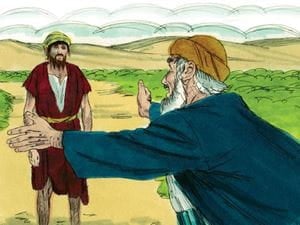
Jesus commonly taught in parables to reveal divine truths. While there are several parables from the Bible most believers are familiar with, they are often misunderstood. For those who lived in biblical times, the parables spoke directly to the theme. Jesus was able to go around the teachers of the Law and bring the message directly to the masses. He was able to deliver a message they could easily comprehend. Parables also tapped into the hearts and imaginations of those who listened to them. A great way to understand the parables is to think of them as earthly stories with a heavenly meaning. Here are five parables of Jesus all believers should know.
The Parable of the Good Samaritan
Many believers are familiar with the parable of the Good Samaritan, referenced in Luke chapter 10. Yet, this is one of the most understood parables of Jesus. Most people quickly know what you mean when you say someone is a “Good Samaritan.” It is someone who shows mercy, compassion, kindness, and care when someone is in need. Yet, in biblical times, people did not see Samaritans this way. People also think the Good Samaritan parable is told to make us feel guilty about not giving their money to the poor and oppressed. However, that’s not the case. The parable is told to remind us to love our neighbors as ourselves. Before Jesus told the story of the Samaritan, he asked what the greatest commandment of all is? He answered, “Love the Lord your God with all your heart and with all your soul and with all your mind and with all your strength.’ The second is this: ‘Love your neighbor as yourself’” (Luke 10:27).
The Parable of the Mustard Seed
The Parable of the Mustard Seed can be found in Matthew 13:31-32, "He put another parable before them saying, 'The Kingdom of Heaven is like a grain of mustard seed that a man took and sowed in his field. It is the small of all seeds, but when it has grown, it is larger than all the garden plants…" Jesus is speaking on growth and that growth has been witnessed in the Church's history. Christianity has grown at an explosive rate since the Church's start. Despite persecution and countless attempts to stamp it out, the Church has still flourished. It is hard to completely comprehend, but this is only a tiny picture of what the Kingdom of God will look like when Jesus makes His final return and reign.
The Parable of the Prodigal Son
There are many examples in the Bible of people wandering. We also see the same theme present in our daily lives. We generally see biblical examples of this in the form of people traveling off-road. A popular example is the parable of the Prodigal Son, appearing in Luke 15:11-32. The Prodigal Son left home to go into a world of sin. The Prodigal Son’s brokenness was the reason why he wandered away from God. In the end, he returned to the father, who accepted Him with open arms. His father celebrated his son in the same way God would celebrate our return to Him as lost sheep. Through this story, we learn an important lesson about the presence of God. We often think that the people who wander are always lost, but that isn’t always true. If you happen to be restless, doubtful or questioning your faith, remember this takeaway – not all who wander are lost. There is hope for those who take the winding path and seek to find God.
The Parable of the Sower of Seed
The parable of the sower of seed appears in Matthew 13. In the parable, a man goes out to sow grain. This man represents God, and the seed represents His message. There was seed that fell on the path, and the birds ate it. Some seed fell on rocky ground where there was little soil, and other seed fell among thorn bushes. It is a growth parable and an allegory about the Kingdom of God.
Jesus drew the disciples away from the crowd right before He interpreted the parable of the seed and the soils. The crowd asked Jesus, ‘Why do You speak to them in parables?’ Jesus responded, “To you, it has been granted to know the mysteries of the Kingdom of Heaven, but to them, it has not been granted. For whoever has, to him, more shall be given, and he will have an abundance; but whoever does not have, even what he has shall be taken away from him. Therefore, I speak to them in parables; because while seeing they do not see, and while hearing they do not hear, nor do they understand…” (Matthew 13:10-13). Following this occurrence in Jesus’ ministry, He only explained to the disciples when He spoke in parables. If you wonder why Jesus let most people wonder about the meaning of parables, this is the reason why.
The Parable of the Weeds
This parable is another allegory, which means it can be interpreted to reveal a hidden meaning. Everything in the parable represents something else. In this passage, also referenced in Matthew 13, Jesus compares the God's Kingdom to a person who sows good seed in a field. While sleeping, an enemy comes and sows weeds with the wheat. Doing this would have meant that the two would grow together, and their roots would be entwined. The sower would not have been able to notice what the enemy had done until the plans began to produce and grow again. The owner expresses to his slaves that an enemy had to have planted weeds. He instructs them not to do anything until harvest time because if they did that before then, they could risk uprooting the grain.
The owner says that the reapers will collect the weeds first, put them into bundles, and burn them at harvest time. Then the wheat will be gathered and placed into the barn. In this allegory, Jesus is the sower, and the devil is the enemy. The good seeds are those who listen and respond to the Gospel. They belong to the Kingdom of God and will go to heaven. The weeds symbolize those who do not listen to the Word of God. They represent “sons of the evil one” and will go to hell in the last days. Angels represent the harvest worker, and the harvest time is the end of days. Ultimately, good and bad people will be separated into their eternal destinies at the end of time.
The parables are some of the most unique and profound parts of scripture. Jesus used them to deliver the Good News. Ultimately, the parables, along with the Gospels, uncover the purpose of Christ, the Son of God. These include fulfilling prophecies, ministering to others, saving the lost, and understanding God better. Set out some time to read some of the most popular parables like the Parable of the Sowers, the Mustard Seed, the Weeds, and the Prodigal Son. You may be able to read these parables again through fresh eyes.

